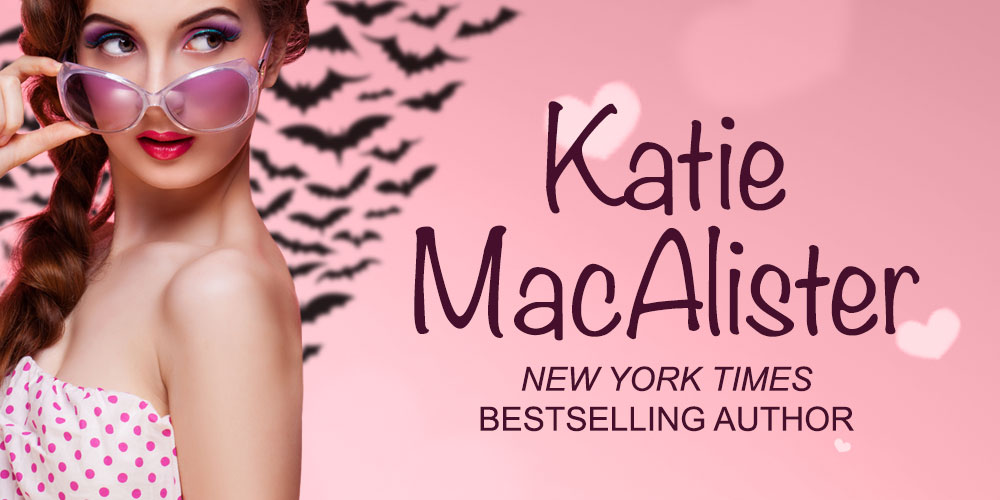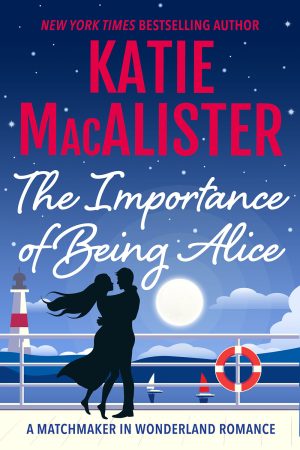Chapter One
Expense Account
Item one: ten pounds
Remarks: Brothers are the bane of my existence.
“El-eeee-uuut.”

“Oh lord, not that again.”
“El-eeee-uuut. Phone home, El-eeee-uuut.”
“There is nothing else on this earth that you can be doing at this exact moment but that?”
“El-eeee-uuut.”
Elliott Edmond Richard Ainslie, eighth Baron Ainslie, and eldest brother to eleven mostly adopted siblings—mostly brothers, due to his mother’s belief that boys were easier to raise than girls—donned a long-suffering expression and leaned back in his office chair. “Very funny, Bertie. Almost as funny as the first one thousand, two hundred, and thirty-two times you blighted me with that movie quote, although I feel honor-bound to point out yet again that it was E.T. who wanted to phone home, and not the young lad who found him.”
“Dude, you always say that, and I still don’t see that it matters. I mean, Elliott would have wanted to phone home if he went up in the mother ship with E.T., wouldn’t he?” Bertie, the youngest of his brothers, slumped into the armchair nearest Elliott’s desk with the boneless grace of young men of seventeen.
“You’re getting your alien movies mixed up again; the mother ship was in Close Encounters. What’s set you off on this eighties movie binge anyway? I thought you were studying for your exams?” Elliott eyed his laptop with longing. He really needed to get this book started if he was to have it finished in time to go with the family on their annual trek to visit the orphanage and school his mother endowed in Kenya.
“Whatev.”
“Really, Bertie? Whatev? You can’t even be bothered to add the last syllable?” Elliott shook his head. “If this is what time in America has done to you, I shall have to speak to Mum about letting you return there in the autumn.”
Bertie clicked his tongue dismissively, swiveling in the chair until his legs hung over one arm. “Mum’ll let me go no matter what you say. My family is there. It’s my crib, you know?”
“Your family is from a small village two hundred miles outside of Nairobi,” Elliott corrected him. “At least that’s what the people at the orphanage told Mum when she adopted you, and I see no reason why they would confuse a small village in Africa with Brooklyn, New York. But never mind all that. Did you want something in particular, or have you just come to blight me on a whim?”
“Elliott!” a voice said sharply from the door.
Elliott sighed to himself. This was all he needed to utterly destroy the morning’s chance at work.
“You will not be cruel to your brother! He is needful of our love and understanding in order to help him integrate into this family. If you abuse him like that, you will end up making him feel that he is a stranger in a strange land.”
Lady Ainslie bustled into the room, clutched Bertie to her substantial bosom, and shot a potent glare over his head at her eldest son.
“He’s been a part of the family since he was two months old, Mum. If he feels like a stranger, it’s because he’s cultivating that emotion, and not due to any ill will on my part,” Elliott couldn’t help but point out.
“You must love all your brothers and sisters,” his mother went on, smooshing poor Bertie’s face into the aforementioned bosom. Elliott winced in sympathy when Bertie’s arms flailed, indicating a lack of oxygen. “No matter what their origins, color, or cultural roots.”
“I do love all my siblings, although I will admit to preferring those you and Papa adopted rather than the two related by blood.”
“Yes, well, that’s because your dear papa and I were first cousins,” Lady Ainslie admitted, utterly ignoring the fact that she was smothering one of her beloved sons. “To be honest, we’re lucky that your sister Jane’s webbed toes are the worst that came out of that. But I digress. You must not pick on dear Bertie, or he will get a complex.”
Elliott gave consideration to the fact that Bertie’s wild gestures were now more feeble twitches than anything else. “I don’t think that will be a problem if you continue to asphyxiate him like that.”

“What? Oh.” Lady Ainslie looked down, and with an annoyed click of her tongue released Bertie. He collapsed to the floor, gasping for air, his face, already dark due to his ancestry, now strangely mottled. “Silly boy should have said something. Now, what did I come to see you about?”
“I haven’t the slightest idea. Is it something to do with the builders? They haven’t rescheduled again, have they?”
“No, no, they’re still coming on Monday as planned. It will be terribly inconvenient having them underfoot for the monthly Mothers Without Borders meeting, but I suppose it is necessary to have the work done.”
“If you wish for the walls to remain upright, then yes,” Elliott said mildly.
He’d worked and saved and scrimped until he had, after seven years, managed to accrue enough money to start the restoration of the seventeenth-century house he had inherited. Along with a lot of debts, he thought sourly to himself, not the least of which was a nearly crippling inheritance tax.
If only his father hadn’t been such a poor financial planner. If only his mother hadn’t spent her own modest fortune on endowing any number of charities in her late husband’s name. It wasn’t that Elliott was against supporting such worthy causes—he was as charitable as the next man, doing his part to end child hunger and abuse to animals, and provide homes for needy hedgehogs—but he couldn’t help but wish that supporting his large family and money-sucking estate hadn’t fallen so squarely on his shoulders.
He had to get this book done. Hell, he had to get the damned thing started. Without the money the book contracts brought in, he’d be sunk. They all would be in desperate straits, everyone from his spendthrift mother right down to Levar, the second-youngest brother, who was recovering from a very expensive operation to straighten one of his legs. “Is there something in particular you wanted to discuss with me? Because if you’ve just come to chat, I will have to beg off. I really must get this book under way if I’m to meet the deadline. Bertie, for god’s sake, stop with the dramatics. You aren’t dying.”
“I saw spots,” Bertie said, ceasing the fish-out-of-water noises in order to haul himself up to the chair. “I saw a light. I wanted to go into the light.”
Elliott bit back the urge to say it was a shame he hadn’t, because he truly did love all his brothers and sisters. Even impressionable, heedless Bertie, who had recently returned from a two-month visit to see distant family members who had long ago emigrated from the small village in Kenya to the US. “Right, what have I told you both about my office door?”
“When the door is shut, Elliott is working,” they parroted in unison.
“And if I don’t work . . . ?”
“We don’t eat,” they answered in unison.
“So why is it you’re both here when this is my working time?”
“I need a tenner,” Bertie said with an endearing grin.
Their mother looked askance. “You just had your allowance. What did you spend that on?”
“Girls,” he answered, his grin growing. “Three of them. Triplets with golden hair, and golden skin, and knockers that would make you drool.”
“Bertie!” Elliott said with a meaningful nod toward their mother.
“Oh, well,” Lady Ainslie dismissed this evidence of teenage libido. “Young men should be interested in girls. Unless, of course, they’re interested in boys, which is perfectly all right no matter what the Reverend Charles says, and if he thinks he’s going to make an example of dear Gabrielle simply because she ran off with his poor, downtrodden wife, well then, he simply needs to think again. The Ainslies have been a part of Ainston village since the Conqueror came over, and I shan’t have him blackening our name now. That brings to mind the letter I intended on sending Charles after that scathing sermon he read last week, which was quite obviously pointed at me. Elliott, dear, have your secretary send a letter expressing my discontent, and threatening to cease our donations to the church if he doesn’t stop writing sermons about women who raise their daughters to become wife-stealing lesbians.”
Elliott sighed and looked at his watch. “I don’t have a secretary, Mum.”
“No?” She looked vaguely surprised. “You ought to, dear. You are a famous writer, after all. No one can kill off people quite like you do. Now, much as I would like to stay and chat, I really must go write an article for The M’kula Times & Agricultural Review regarding the upcoming celebration at the Lord Ainslie Memorial School of Animal Husbandry. I’ve been invited to speak at the opening of the new manure house next month, and I want to alert all our friends in Kenya to that worthy event. Do give your brother ten pounds. Young men always need ten pounds.”

“And speaking of that, have you given any thought to my suggestion?”
“What suggestion?” Her face darkened. “You’re not still intending on committing that atrocity?”
“If by atrocity you mean requiring that the members of this family find gainful employment elsewhere, yes.” He held up a hand to forestall the objection that he was certain she would make. “Mum, I have explained it at least three times: I cannot continue to support every single member of this family anymore. All those brothers and sisters are a drain on the estate, one that cannot continue unchecked.”
“You are exaggerating the situation,” she said dismissively. “They are your family. You owe them support.”
“Emotional support, yes. Help where I can give it, of course. But the financial situation has made it quite clear that only those members of the family who actually work for the estate will continue to be employed. Everyone else is going to have to find a job elsewhere. We can’t afford to support them simply because they are family.”
“You are heartless and cruel!” his mother declared, one hand to her substantial bosom. “Your father would turn over in his grave if he knew how you were willing to disown all your siblings without so much as a thought for their welfare.”
“I have had many thoughts for their welfare, but I am also responsible for the estate, and everyone employed by it, as well as the many tenant farmers. Mum, I’m sorry, but there’s no other way. If I don’t cut out the deadweight, we’ll be foreclosed upon, and I don’t think anyone wants to see that happen.”
“But your brothers and sisters! What are they to do? How will they live?”
He smiled grimly. “Just like the rest of us. They’ll have to get real jobs.”
She gasped in horror. “You plan on throwing everyone to the wolves?”
“Hardly that. Dixon’s job as the estate agent is quite secure—I couldn’t do half the work he does. Gunner has employment elsewhere, so he doesn’t come into the equation. Gabrielle is excellent at managing the tour guides and gift shop, so her job is safe. Assuming she comes back from wherever she ran off to. But the others will simply have to find jobs outside of the castle.”
“You are not the man I thought you were,” his mother said, giving him a look filled with righteous indignation. “I would wash my hands of you except I believe that one day your sanity will return to you. I just hope you haven’t destroyed the family before that time.”
With a dramatic flourish, she exited the room.
“One down,” Elliott said with a sigh. He eyed his brother.
“This one will cost you a tenner,” the little blighter had the nerve to say.
Elliott fought the urge to sigh again, and gave in to the roguish charm that won Bertie so much admiration from the local teenage female population. He dug a ten-pound note out of his wallet. “Mind this lasts longer than the last one I gave you. I’m not made—”
“—of money, I know, I know,” Bertie said with a laugh. He tucked the cash away and gave Elliott a friendly buffet on the shoulder, saying, in a bizarre mix of British and American slang, “But you’re the only one of us that has any dosh. Thanks, bro. You da man.”
The door closed behind Bertie with a satisfying thud.
“Alone at—”
“Elliott, I remember now what it was I came to tell you before you began speaking so cruelly of all your helpless siblings,” Lady Ainslie said, her head popping around the door just as Bertie left the room. “The man wishes to speak with you.”

“Man?” Elliott ran over the mental list of men he knew who might show up at the castle and demand an audience. “What man? One of the builders?”
“No, no, the Irishman. The one you went to school with. He’s on the phone for you.”
“Patrick?” Elliott patted his pockets, realized that he didn’t have his mobile phone, and followed after his mother as she disappeared down the dark corridor. “Mum, how often have I asked you not to answer my mobile phone?”
“But it was ringing, dear. And it might have been someone important.”
When his mother turned right at the long galley, Elliott turned left and raced down the back stairs to the small room on the east side of the house that used to be known as the ladies’ withdrawing room. In it was a comfortable, if eclectic, collection of furniture retrieved from the attics, and which made up the family’s sitting room.
“Hullo?” He expected to see the phone turned off, but it was still active, and he could hear voices emitting from it. Picking it up, he said, “Patrick?”
“—and don’t forget to make an appointment with the agent. I want the condo sold no later than March. What? Elliott, is that you? Had to send to the back forty for you, did they?”
“Back forty what?” Elliott asked, confused.
“It’s an American expression.”
“Ah. To what do I owe the honor of this call? Oh, hell, that sounded rude. Ignore me, I’m in a foul mood. It’s been a nightmare around here gearing up for some renovations, and I’m late getting started on a new book. Let me start again: nice to hear from you, Patrick. How are you doing?”
Patrick laughed, and said something under his breath to his secretary about moving a meeting to the following week. “No need to apologize. Your foul mood is why I’m calling. Your sister was talking about you the other day, and she suggested you be the one to take the tickets, rather than my secretary trying to flog them on Craigslist.”
Elliott sat in his favorite armchair, the one that was stained with decades of ink spilled by some long-dead literary ancestor. “My sister? Tickets? Craigslist? Christ, now I sound like a deranged parrot. Which sister, and what tickets are you talking about?”
“The tickets for my prewedding trip down a couple of rivers in Europe to that city in Czechoslovakia. You know the place.”
“Prague?”
“No, no, the other place. The one with that big bridge that gets all the attention.”
Elliott thought. “Budapest?”
“Yes, that’s the place. The river tour goes from Amsterdam to Budapest.”
“Budapest is Hungary, not the Czech Republic.”
“Same difference,” Patrick said with an airy lack of concern. “I’ve parted ways with Alice, so I don’t need the tickets, and since your delicious sister swore it was bad juju for her to take the place of an ex, she thought that you could do with the trip. Since I hear all hell is about to break out at Ainslie Castle, that is, and of course, your straitened circumstances.”
There was a tinge of satisfaction in Patrick’s voice that Elliott ignored. Before he could respond, he heard someone yelling for him. No doubt it was yet another minor crisis. He sank down farther into the chair, asking, “Who’s Alice?”

“My ex. It was past time to let her go. You know my rule.”
“Two years with any given woman, and not a single day more,” Elliott said, making a face at nothing in particular. He’d always thought Patrick’s method of conducting his romantic affairs particularly coldhearted.
“That’s right. As a matter of fact, I broke that rule by sticking with Alice for three extra months, but where did that get me? She called me a bastard. She said that half the condo was hers. She claimed I misled her. Me! It would have been laughable if it wasn’t so damned unpleasant. It was a sign, I tell you, Elliott, a sign that it doesn’t do to go against the rule. If you don’t move on when you’re supposed to, nothing good will come of it.”
“I’ll be sure to remind my sister of that,” Elliott said smoothly. “Which sister will I be informing of your intentions two years hence? You’ve met all three of them over the years, although one wouldn’t give a fig for you. At least not romantically speaking.”
Patrick laughed again. “Don’t be such a wet blanket. Who knows, Jane could be the one that breaks the rule. Regardless, I’ll e-mail you the ticket information. Alice said she wouldn’t go on the trip if I paid her to, so you’ll have the cabin all to yourself. Boat leaves next Monday. Don’t worry about paying—it’s no hardship to me, and I know you’ll appreciate the largesse. You’ll have a fortnight floating around rivers, which your sister says will give you peace and quiet you won’t have at home. Regards to Lady Ainslie. She sounds as distracted as ever. What’s that? Yes, yes, I’ll take that call. I’m done here. Elliott, must ring off. Your sister Jane and I are off to Paris in the morning, and I have an important vendor from Australia on the line.”
“Wait a moment, what—”
The connection ended, leaving Elliott to stare in confusion at his phone.
“Mum says the builder needs you. Something to do with wanting more money.” Gunner paused and stared at Elliott. “You all right? You look even more harassed than usual.”
“I just had an odd call from Patrick.”
“Daft Irish bastard Patrick?” Gunner asked, coming into the room and setting down a duffel bag that had been slung over one shoulder.
“Yes, although he’d bloody your nose again if he heard you calling him that.”
Gunner grinned. The first child adopted by the baron and baroness, he was a self-defined mutt of a man, with a mix of ethnicities that ranged from African to South Pacific, and even some Slavic. “He could try. I haven’t seen him in . . . hell, eight years? Nine? What’s he done now? Don’t tell me he’s found some new way to flaunt his wealth in front of you.”
Elliott shook his head, then changed it to a nod. “He can’t help it, he’s got an inferiority complex where it comes to me. Actually, he’s doing me a favor. I think.” He explained about the cruise.
“Nice,” Gunner said with a low whistle. “I wish I had mates who’d give me trips to the Continent like that.”
Elliott eyed the scruffy duffel bag. “Aren’t you leaving today for Spain?”
“Yes, but that’s work. I’ll be baking in the hot Spanish sun taking pictures of abandoned factories while you’re swanning around on some cruise ship. The life of an industrial photographer is not a posh one. Not like that of writers.”
“You know exactly how un-posh my life is,” Elliott answered. “Did you know Jane was in the States? The last I heard she was in Ottawa working for an Internet firm.”
“No, but it doesn’t surprise me that Patrick managed to find and acquire her. He’s been dying to hold a relationship with one of the girls over you ever since his balls dropped.”
“I don’t give a damn who he dates,” Elliott protested.
“You and I know that, but Patrick clearly views it as a way of scoring against you. You have a title and aristocratic family that I can’t ever have, so I’ll bang your sister. That sort of thing.”

“A title that’s bound by debts, and a family that’s driving me insane before my time.”
Gunner glanced at his watch. “Patrick will never see that. You going to take the tickets?”
“I don’t know. It does make me feel a bit beholden to him—”
“Elliott! Come quick, Mum says the renovation man wants another check. Something about the cost of stone going up.” Bertie appeared briefly in the doorway, jamming a motorcycle helmet on his head, clearly on his way out to spend the ten pounds. “Oh, and one of the hothouses is on fire, but it’s the one with the aubergines, so no loss there. Later, brothers!”
“I like aubergines,” Elliott started to say, but stopped when Gunner laughed aloud.
“Sounds like you’d best take Patrick’s offer, El. You’ll go mad if you have to stay here for the next few weeks.”
“There are times when I wish a portal would open up right here at my feet, one that would transport me to another place, one without demands for money I don’t have, and time I can’t waste. But reality persists in being unhelpful, and I always remain right where I am.”
Gunner scooped up the duffel and slung the strap across his chest. “Two weeks, El. No phones, no distractions and endless interruptions, no demands for more checks . . . just the blissful lapping of water against the side of the ship, and the quiet of a cabin all to yourself.”
“It does sound like heaven.”
The distant sound of a fire truck reached their ears. Gunner gave his brother a friendly punch in the arm, and left, saying, “I’m off to Spain, followed by a jaunt to Portugal to photograph the inside of a partially collapsed mine. And possibly Bulgaria, if my employers can smuggle me into an old radium factory.”
“That doesn’t sound healthy.”
Gunner shrugged. “There is an interested bidder on the property, but the Bulgarian government isn’t too wild about letting people photograph it. If I can sneak in, then I’ll get some shots. Otherwise, I will be home in a week.”
Elliott waved absently, making a decision right then and there. He’d take the trip that Patrick offered. A cruise down Europe’s most famous rivers couldn’t be any more disruptive than home, after all.









